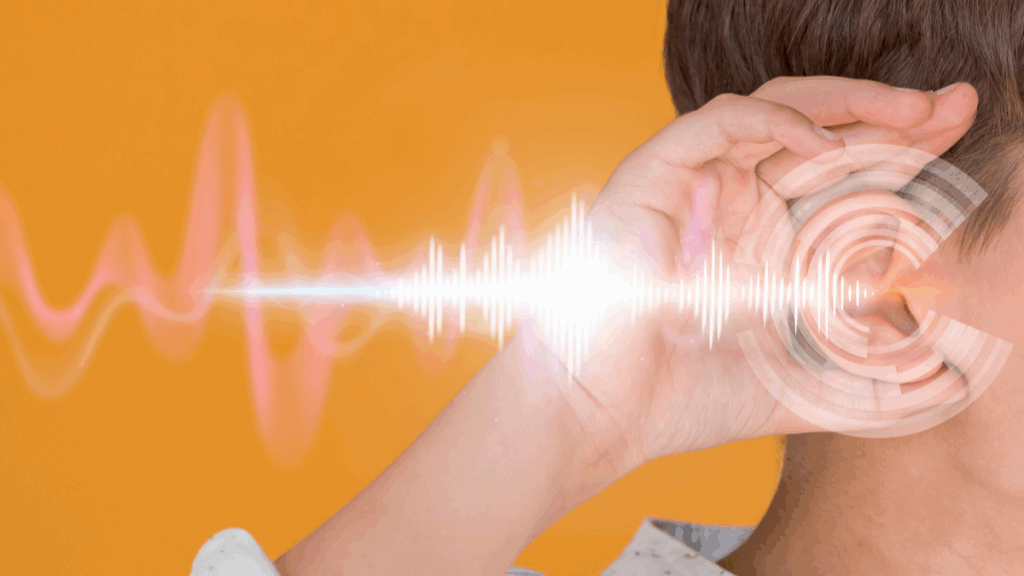
How to Improve Ear Health: Natural Ways to Prevent Hearing Problems
Maintaining ear health is vital for protecting hearing abilities as well as living a normal quality of life. The following guide gives you straightforward methods to improve ear health. A combination of small daily habits with prevention techniques against infections and hearing damage will bring maximum benefits to your ear health.
The ears represent sensitive organs that enable human hearing functions while maintaining body balance. People today develop ear issues due to both loud noises and unhealthy eating patterns, as well as habits that lack care. This trend affects the hearing of young adults, too. The good news? The majority of hearing difficulties remain preventable when people follow basic tips that they can easily implement.
This blog provides complete information about healthy foods, together with sound protection measures, along with recommended ear-friendly exercises, while warning participants about important signs to monitor. The methods for ear care need simple daily attention over expensive medical treatments or doctor consultations.
Following the guide will provide you with everything you need to know for ear care as well as continued hearing sharpness throughout multiple years.
Understanding Ear Health
Ear health encompasses the good functioning of the entire ear-outer, middle, and inner ear. Good ear health helps with maintaining balance, communication, and enjoying life in the absence of discomfort or hearing loss.
Common Ear Problems
- Blockage of the ear, in this instance, from earwax buildup
- Ear infections give rise to pain and fever.
- Tinnitus is a perception of ringing or buzzing sounds in the ears without any external sound.
- Noise-induced hearing loss results occur due to expended exposure to loud sounds.
- Age-related gradual decline in hearing (Presbycusis).
Hearing vs Ear Health
- Ear health means keeping your ears free from damage, infections, and blockage.
- Hearing ability means how much you can hear across different frequencies.
Signs You May Have a Hearing Problem
Recognizing the early signs of hearing trouble can prevent serious problems.
Here are common warning signs:
Signs of a Hearing Problem | What It Means |
Trouble understanding conversations | Possible hearing loss |
Frequently asking others to repeat | Hearing is getting weaker |
Ringing or buzzing in the ears | Sign of tinnitus |
Needing higher volume for TV or music | Hearing sensitivity is reduced |
Feeling of fullness or pressure in the ears | Maybe infection or wax blockage |
Lifestyle Tips to Improve Hearing
These are a few lifestyle changes that are sure to enhance ear health:
Bar Ears Against Noisy Noises
- Carry earplugs or hearing protection when attending concerts, nightclubs, or working in a heavy construction environment.
- Maintain the volume on headphone sets below 60%.
- Follow the 60/60 rule- limited listening time to 60 minutes at 60% volume.
Quit Smoking:
- The tiny blood vessels in the ear can be damaged due to smoking.
- A study also suggests that people who smoke have a higher chance of hearing problems.
Stay Hydrated and Rested:
- Drinking a lot of water keeps the fluids surrounding and within your ears healthy.
- Rest allows for repairs of tiny internal cells in the ear exposed to noise.
Regular Hearing Check Ups
- Early detection and promoting action can help prevent permanent hearing loss.
- Visit the audiologists at least once a year.
- Do this mainly if you are more than 40 years of age.
Diet and Nutrition for Ear Health
Nutrient | Food Sources | How It Helps |
Magnesium | Bananas, spinach, almonds | Protects ear cells from noise damage |
Potassium | Potatoes, tomatoes, yoghurt | Balances fluid in the inner ear |
Omega-3 fats | Salmon, flaxseeds, walnuts | Improves blood flow to the ears |
Zinc | Chickpeas, pumpkin seeds | Supports ear tissue healing |
Vitamin C & E | Oranges, kiwis, nuts | Fights free radical damage |
A Simple Ear-Health Meal Plan:
- Breakfast: Yoghurt with bananas and almonds
- Lunch: Grilled salmon with spinach salad
- Snack: Pumpkin seeds and a kiwi
- Dinner: Roasted sweet potatoes with lean beef
Ear Exercises and Relaxation Techniques
Similar to muscles that require exercise, stimulation is a requirement for the ears and brain. If you want natural ways to improve hearing, try adding just a couple of simple exercises and relaxation techniques, and you’ll see a real difference.
Simple Ear Exercises:
- Concentration Exercise: Just close your eyes, concentrating on identifying sounds coming from your surroundings.
- Sound Localization Exercise: Request a friend to produce soft sounds from various places and try to pinpoint the source.
Relaxation Methods:
- Breathing Exercises: Deep breathing improves the supply of oxygen to the ears.
- Neck and Jaw Stretches: Gently rotate the neck and side-to-side the jaw to exercise relaxation for the ear muscles.
Read more about: how to improve hearing naturally
Natural Remedies to Support Ear Function
Some home remedies can support better ear health when used carefully, they will improve hearing naturally.
Safe Remedies
- Garlic oil is a natural anti-inflammatory that can soothe minor ear aches when applied in small drops.
- Ginkgo biloba supplements help with blood circulation in the ears.
- Apple cider vinegar diluted with water may be used as an ear drop, provided there is no injury to the ear.
Important Note
Never put anything in your ear without consulting a doctor if there is any pain, injury, or discharge.
When to Consider Seeing a Hearing Specialist
Not all hearing problems can be addressed through home care.
If any of the following apply, then seek professional assistance:
- You experience sudden hearing loss.
- You have had recurrent ear infections.
- You have ringing in the ear (tinnitus) lasting more than a week.
- You experience dizziness or feel unsteady.
Based on the cause, an audiologist may offer treatment options such as hearing aids, therapy, or medical treatment.
Conclusion
Ear promotion and ear health management through daily minor consistent steps remain both easy and straightforward to achieve. Basic daily practices, including ear protection against high-volume noises, as well as proper nutrition alongside routine ear movements and hearing problem detection awareness, will lead to significant improvements during your lifetime.
Hearing damage that occurs becomes persistent; therefore, you should take protective measures before it happens rather than trying to fix the problem afterwards.
Frequently Asked Questions
In some cases, early-stage hearing problems caused by infections or blockages can be improved naturally. However, nerve-related hearing loss usually needs professional treatment.
Foods rich in magnesium, potassium, zinc, omega-3 fats, and antioxidants — like salmon, bananas, spinach, and nuts — are excellent for supporting healthy ears.
Always wear earplugs, avoid standing near speakers, and take short breaks in quieter areas to give your ears time to recover.
No, using cotton swabs can push wax deeper into the ear canal and cause damage. It’s better to clean only the outer part of the ear or to consult a doctor.
It’s recommended to have a hearing check-up once a year, especially if you are over 40 or work in noisy environments.
Dr. Harshi, is an accomplished Audiologist with extensive expertise in treating individuals with hearing impairments.

